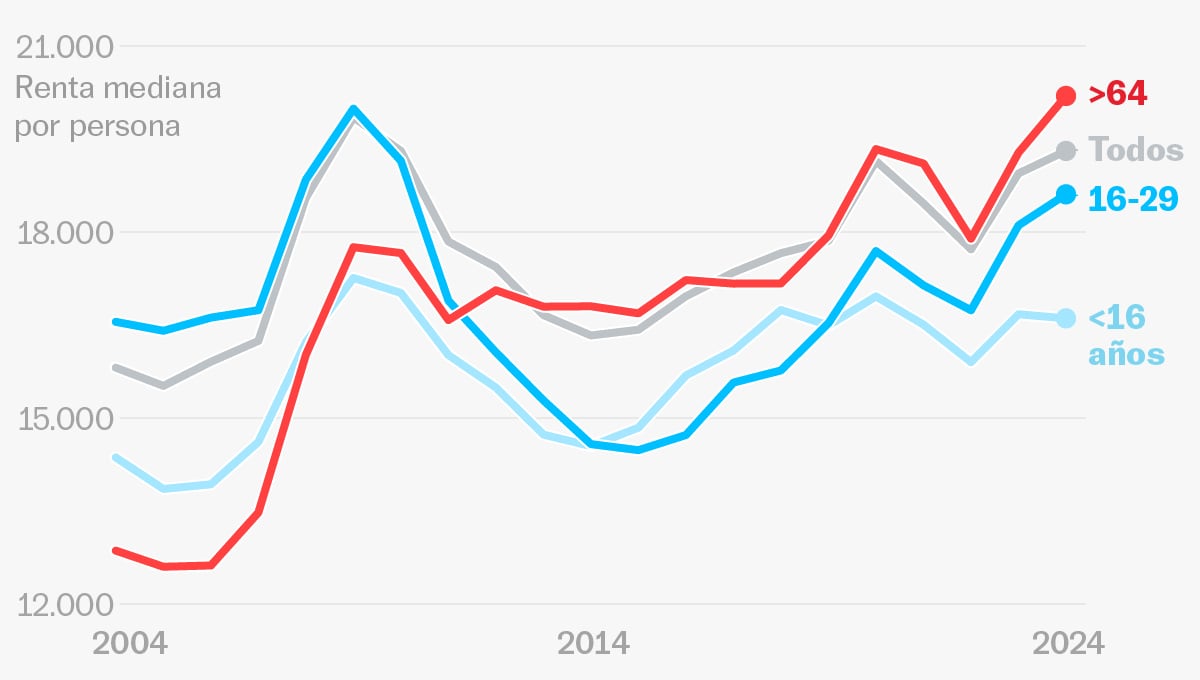
"Is our system too generous to older people? The generational debate in Spain has intensified, mixing reasonable arguments with false claims and misunderstandings. My position: the concern is valid, even though the problem has no simple solution. First, let's put one point aside: it doesn't matter if young people have lived better than their parents. My generation (1981), lives better than the one before it (1950), and I hope my daughter, born in 2023, will have an even better life."
"Spain is a richer, healthier, freer, and more equal country. But that doesn't stop the following from being true: an economic gap has opened between generations. The numbers make this clear. It is visible in incomes. In 2004, people aged over 65 had a median income 20% lower than the general population; today, it is 5% higher. The group with the lowest incomes? Households with children."
"Poverty statistics point to the same trend. In 2004, people of retirement age were the group most at risk of poverty: 30% were in that situation. By 2024, that figure has been cut in half (16.8%), while poverty now affects young people (21%) and children (29%) the hardest. What's more, the gap is widening when it comes to wealth. Before the financial crisis (and the"
Concern about intergenerational inequality in Spain is valid and lacks a simple solution. Older cohorts have seen median incomes and poverty risk improve markedly over two decades, while younger adults and households with children have experienced falling incomes and rising poverty. In 2004 retirees had median incomes 20% below the general population; by 2024 they are 5% above. Retirement-age poverty fell from about 30% to 16.8%, while poverty rates for young people (21%) and children (29%) are now higher. The disparity also appears in wealth, and demographic and policy factors contribute to widening gaps.
Read at english.elpais.com
Unable to calculate read time
Collection
[
|
...
]